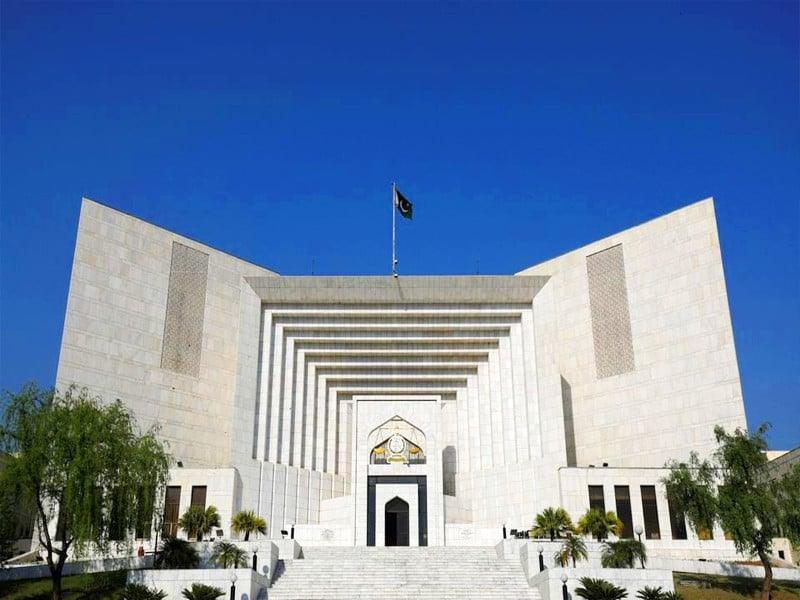Islamabad:
Some members of a constitutional bench (CB) from the Supreme Court raised a number of questions with regard to SC’s powers to ensure “complete justice”. They also asked how non -assignments of reserved seats for PTI could be called a violation of fundamental rights.
PTI leader Kanwal Shauzab’s adviser Salman Akram Raja on Friday resumed his arguments in support of SC’s 12 July majority order in the reserved seat case before CB-11 members led by Justice Aminuddin Khan, consultation reviews against the verdict.
Raja stated in his arguments that it is the responsibility of this court to protect fundamental rights and this responsibility is assigned to the Constitution.
Justice Jamal Khan Mandokhail asked Raja on how Article 187 applies in this case.
Article 187 (2). Paragraph 1 gives the Supreme Court the power to place any order or direction necessary to perform complete justice in any case pending it, while Article 187 (2). 2, it gives the powers as a civil court to enforce its decisions, including the issuance of orders to any person or authority.
Raja replied that he would later explain this. He said the Supreme Court has a broader authority and can use Article 187 together with Article 184 to provide complete justice.
Justice Mandokhail asked if Article 184 (2). 3, used in cases of general interest.
Salman Akram Raja answered affirmingly. He said that SC can use Article 184 (2). 3, to general interest and fundamental rights. “When there is destruction or crisis, one does not ask which article applies – then the Supreme Court should go forward and do what is needed.”
Justice Mandokhail asked if SC still applies to a constitutional violation, but no specific article applies, SC still has to intervene. The lawyer said in such a situation that SC should do what is needed.
Justice Muhammad Ali Mazhar noted that Article 199 cannot be read together with Article 187. He noted that the Supreme Court, under Article 199, has powers that the Supreme Court does not possess.
Article 199 of the Constitution outlines the written jurisdiction of the high courts. It allows high courts to issue different writings (orders) to enforce fundamental rights and ensure legal behavior from the authorities.
Justice Salahuddin Panhwar asked what in his opinion are the limits of the Supreme Court’s powers. Justice Jamal Mandokhail said, “My brother judge suggests there should be some limit to the powers. Does the Supreme Court have unlimited powers in all cases?”
He then asked if a constitutional or legal violation occurred in the majority of the decision in the case for reserved seats. Salman Akram Raja said, “There was no overreaction in the Supreme Court’s decision.”
Justice Mandokhail noted that the constitution itself gives the parties the right to participate within three days. Justice Aminuddin Khan interacted.



